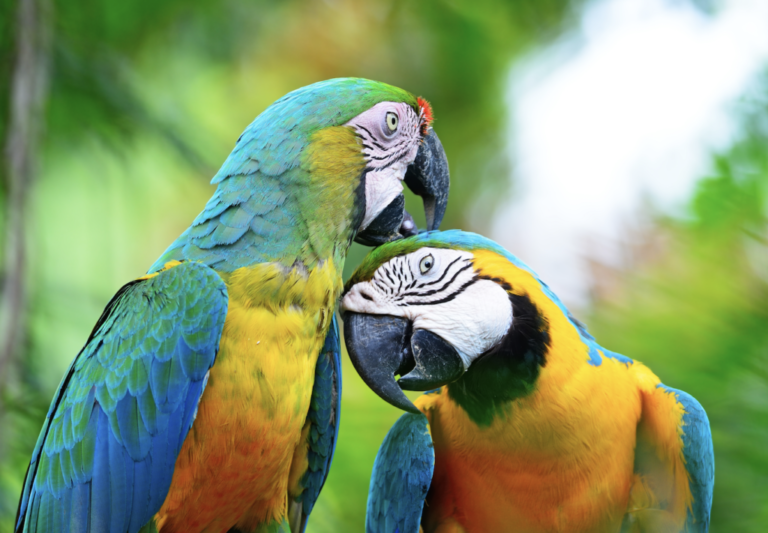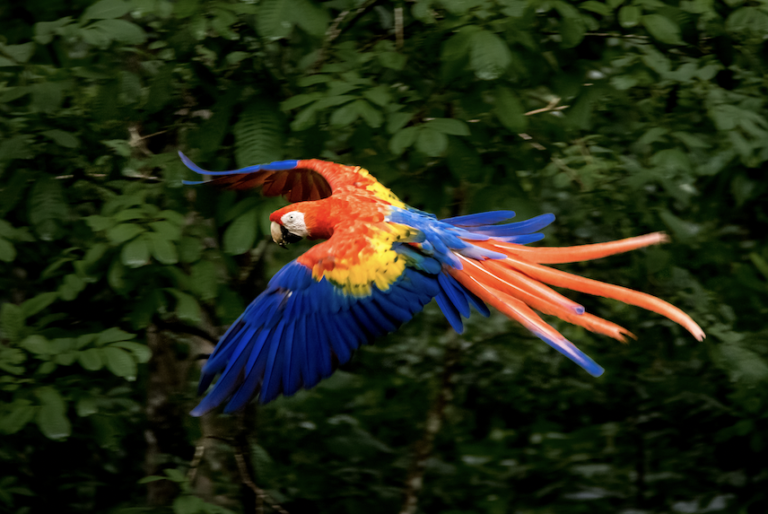Species in Peril:
MACAWS

Going extinct because of their beauty
A bird amongst us
Macaws are the brilliantly colored king-sized members of the parrot family. Macaws have typical parrot features. Their big size and vibrant colors make them hard to overlook.
Macaws use their powerful beaks that can easily crack nuts and seeds to facilitate eating. Their dry, scaly tongues have a bone inside of them that makes them an effective tool for tapping into fruit. They like to play in the water and examine objects with their feet.
Screaming comes naturally
The macaws ‘scream’ allows them to make contact with one another to define territory and as part of their play.
Macaws can also imitate sounds and macaws that live with or near humans.
Macaws that live near humans often repeat words they hear until they get it right.
A loyal partner
The macaw is a social bird that will usually remain with one partner for its entire life This close familial relationship is called a pair-bond. The pair reinforces its bond by continuously preening each other’s feathers.
During incubation, the female spends about 70 percent of her time with the eggs and is fed by the male. This bond is so strong that even when the pair flies with a large flock the two stay close together with their wings almost touching.
Macaws love their clay licks
Some foods eaten by macaws are thought to contain toxic or caustic substances that are difficult to digest. In order to alleviate this difficult-to-digest food, the macaw then flies to the clay licks.
It has been suggested that parrots and macaws eat this clay from exposed river banks in order to neutralize these toxins. In actuality, it found that the macaws and other birds preferred its clays with the higher levels of sodium content.
Interesting Facts about macaws
- Macaw’s average lifespan is 60 years in the wild
- Macaws are most active from morning to midafternoon
- Macaw chicks are helpless at first and chicks in the same nest and most often only the stronger chick survives
- About 7 to 25 offspring are produced per year
- Macaws and their feathers have attracted people throughout history
- Macaws fly as far as 15 miles each day to feed
Macaws are in Danger of Extinction
When people think of poaching, they think of elephants and rhinos. But millions of animals get poached every year and many species are on the brink of extinction due to the uncontrolled systematic stealing of animals from the wild.
Macaws are one of those animals taken from the wild and forced into the illegal pet trade industry. Many of these birds die in the process of being smuggled from one country to another.
If you want to help this species survive, please do not support the purchase of any of these birds, regardless of the source. These birds deserve to be in their native forests and not in our cages for our personal enjoyment.

Species Name
Psittacidae
Estimated Population
20,000-50,000 total though some sub-species are critically endangered
Conservation Status
critically endangered
Range
Central and South America
Reasons for Population Decline
Illegal pet trade


